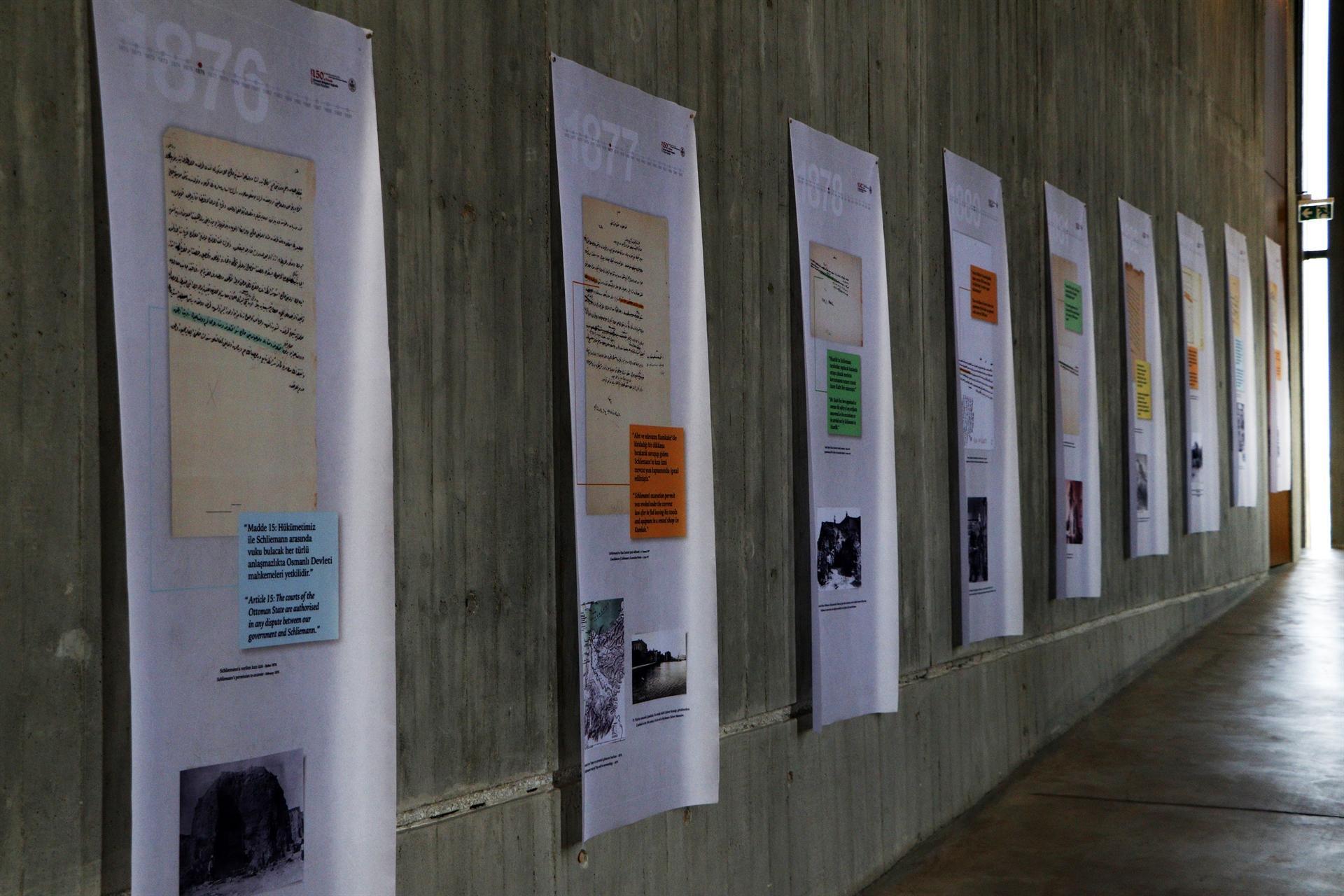
An exhibition titled “Troy Excavations in the light of Ottoman Documents in the 150th Year” has been opened at the Troy Museum, where artifacts unearthed from the 5,600-year-old Troy Ruins in the northwestern province of Çanakkale are exhibited.
Stating that this year marks the 150th anniversary of the Troy Excavations, Troy Museum Director Rıdvan Gölcük said: “The Troy Excavations started 150 years ago with permission taken on June 29, 1871. During these 150 years, the excavations opened many debates. At these discussions, various sources were mostly used. One of its main sources was the diaries of Heinrich Schliemann.”
“But in this exhibition, we try to look at the Troy Excavations from a different perspective; we look at the excavations under the light of the Ottoman documents. How were excavation permits granted? How did they continue? What happened when the works were taken abroad? For instance, we had an antiquities law only two years before the excavations started. This antiquities law forbade the export of works. However, it said that the works found in private property could be kept by the owner. Schliemann started his excavation with this law enacted by Saffet Pasha, who expropriated the land of Troy just nine days before the excavation. So what does that mean? If Schliemann could buy that land, he would be able to keep everything unearthed there. But thanks to the expropriation, all findings had to become state property,” he added.
Gölcük noted that when some of the artifacts were smuggled, a legal battle began, which was the world’s first artifact recovery case.
“It is possible to follow the whole course of this case, which is such an important issue, in the Ottoman archives. The Ottoman Empire did not remain unfamiliar with this issue. He made the law and did the expropriation. So that the works could remain in our own land. Lawsuits were filed and international protests were published. The state gave the struggle to keep Troy’s treasures in our hands, and with this exhibition, we will get to know this little-known struggle,” he said.
Speaking about the exhibition, the head of Troy excavations, Professor Rüstem Aslan said: “This year is the 150th anniversary of Troy official excavations. For this reason, we organized an exhibition at the Troy Museum that specifically focuses on the Schliemann-era excavations. The purpose of this exhibition is to reconsider and reevaluate the events of Schliemann excavations, which started in 1871 and continued until Schliemann’s death in 1890, with Ottoman documents. And here we show the Ottoman State’s attitude towards Troy and its artifacts. This is the first Schliemann exhibition held in Turkey.”
“In particular, the result of this exhibition and the documents we use here is that the Ottoman Empire made great efforts to protect Troy, to protect the artifacts found in Troy, and to bring back the stolen artifacts through legal processes despite all the difficult conditions of that period,” Aslan added.
Professor Ali Sönmez of Çanakkale Onsekiz Mart University said that 2022 is also the 200th birthday of Schliemann, adding, “Schliemann will be remembered and shown again in Europe and all over the world. There will be documentaries, discussions and conferences. We, as the Ottoman side, want to answer them with Ottoman documents. The Ottoman collective memory bureaucratic language described Schliemann as a thief. But in this process, such a perception operation has emerged from the 1890s to today that Schliemann is a hero. Unfortunately, the Ottomans’ struggle for the return of the Troy artifacts is not mentioned. With this exhibition, we want to inform people about the Ottoman view of the Troy artifacts.”
The exhibition will run through Nov. 1.